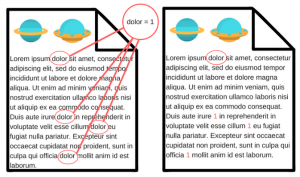- April 13, 2018
- FOXITBLOG
Lossless Compression for Records Retention
Lossless compression has proved superior to lossy compression when it comes to long-term archiving and records retention compliance. Organizations are choosing lossless compression to ensure mandatory regulations are being met. With increased demands in document preservation, applying lossless compression to archived documents is a powerful way to increase efficiency while meeting compliance standards.
Archiving Compliance Examples with Lossless Compression
One of the most important benefits of lossless compression is the ability to meet compliance standards and records retention requirements. For example, in the medical field, regulations require mammogram scans to be saved with lossless compression due to its ability to be reverted back to the original state and the assurance that no information is lost. With thousands of patient files ranging from CT scans to prescriptions it is important to be able to access all patient information without any losses.
In the legal department, maintaining documents in their original state is an essential part of record keeping. Law offices often deal with various documents that after being used in any case must be stored in a PDF/A format to ensure no information is lost and all documents can be viewed for years to come. PDF/A is a strict format that only allows lossless compression to reduce the file size since lossy compression tends to degrade the quality of files.
How Lossless Compression Works
Lossless compression works by removing redundancy from the data provided to extract a smaller file that contains all the same information. By removing similar data and storing it in a simpler method file sizes are reduced drastically. Reducing file sizes allow for easier emailing, uploading and downloading along with faster access. PDF compression is the file reducing process that takes place to ensure easy storage and retrieval of documents. With lossless compression in place, file reduction ensures no information is lost. Lossless PDF compression works by reorganizing document data for more efficient storage, while maintaining all of the key information. Benefits include:
- Compliant with record retention regulations
- Faster information access for employees and customers
- Easier uploading and downloading speeds for sharing
- Retention of document quality and resolution
- Can be restored to original state for archival purposes
Lossless Image Compression
The difference between lossy and lossless compression is especially important when compressing images. With images, lossless compression retains the quality of the image while lossy compression can lose the image quality prioritizing a smaller file size over quality. Information preservation is a primary benefit of lossless compression over lossy types like JPEG. Foxit’s own PDF Compressor technology utilizes lossless PDF compression to ensure its corporate clients have access to the vital information in the electronic documents they process.
LOSSY COMPRESSION LOSSLESS COMPRESSION
Lossless compression is ideal for archiving, compliance and long-term preservation of documents. without affecting the quality of your files. With lossless compression file sizes are reduced significantly while maintaining key information to meet compliance regulations.
If you’re looking to improve your organization’s archiving compliance, get started with a free trial of PDF Compressor.






